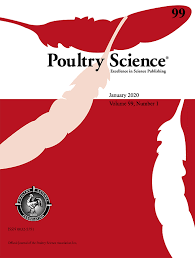Type de document : revue scientifique publiée dans Frontiers in Veterinary Science
Auteurs : Victoria E. Lee1, Gareth Arnott, Simon P. Turner
Résumé en français (traduction) : Comportement social des animaux de ferme : appliquer la théorie fondamentale pour améliorer le bien-être des animaux
Une compréhension fondamentale du comportement est essentielle pour améliorer le bien-être de milliards d’animaux de ferme dans le monde. Bien qu’ils vivent dans un environnement géré par l’homme, les animaux d’élevage sont toujours capables de prendre des décisions comportementales importantes qui influencent leur bien-être. Dans cette revue, nous nous concentrons sur les interactions sociales, qui sont peut-être les aspects les plus dynamiques et les plus difficiles de la vie des animaux de ferme. Le stress social est l’une des principales préoccupations en matière de bien-être des animaux d’élevage, et des variations substantielles du comportement social sont observées au niveau individuel et collectif. Ici, nous examinons comment une compréhension fondamentale du comportement social peut être utilisée pour : (i) comprendre les interactions agonistiques et affiliatives chez les animaux d’élevage ; (ii) identifier comment les environnements artificiels influencent le comportement social et ont un impact sur le bien-être ; et (iii) fournir des informations sur les mécanismes et le développement du comportement social. Nous concluons en soulignant les possibilités de s’appuyer sur les travaux antérieurs et en suggérant des hypothèses fondamentales potentielles ayant une pertinence appliquée. Les domaines clés de la recherche future pourraient inclure l’identification des avantages en termes de bien-être des interactions sociales positives, les impacts potentiels de la perturbation des liens sociaux importants, et le rôle des compétences permettant aux animaux de ferme de naviguer entre les interactions sociales compétitives et positives. Ces études devraient permettre d’améliorer le bien-être des animaux d’élevage, tout en étant applicables à d’autres contextes, tels que les zoos et les laboratoires.
Résumé en anglais (original) : A fundamental understanding of behavior is essential to improving the welfare of billions of farm animals around the world. Despite living in an environment managed by humans, farm animals are still capable of making important behavioral decisions that influence welfare. In this review, we focus on social interactions as perhaps the most dynamic and challenging aspects of the lives of farm animals. Social stress is a leading welfare concern in livestock, and substantial variation in social behavior is seen at the individual and group level. Here, we consider how a fundamental understanding of social behavior can be used to: (i) understand agonistic and affiliative interactions in farm animals; (ii) identify how artificial environments influence social behavior and impact welfare; and (iii) provide insights into the mechanisms and development of social behavior. We conclude by highlighting opportunities to build on previous work and suggest potential fundamental hypotheses of applied relevance. Key areas for further research could include identifying the welfare benefits of socio–positive interactions, the potential impacts of disrupting important social bonds, and the role of skill in allowing farm animals to navigate competitive and positive social interactions. Such studies should provide insights to improve the welfare of farm animals, while also being applicable to other contexts, such as zoos and laboratories.







